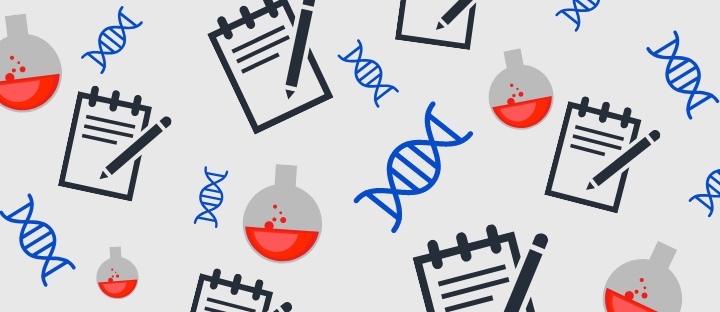#ScienceSaturday posts share relevant and exciting scientific news with the KAND community. This project is a collaboration between KIF1A.ORG’s Research Engagement Team Leader Alejandro Doval, President Kathryn Atchley, Science Communication Volunteer Aileen Lam and Chief Science Officer Dr. Dominique Lessard. Send news suggestions to our team at impact@kif1a.org.
KIF1A-Related Research
A kinesin-1 variant reveals motor-induced microtubule damage in cells
This week we are featuring a preprint from the Verhey Lab (led by KIF1A.ORG Research Network member, Dr. Kristen Verhey) starring the kinesin-1 family of motors. In this paper, the authors are investigating a kinesin protein that we don’t discuss often in Science Saturday called KIF5C. Specifically, this study aims to understand how an engineered mutation in the cover strand (an area in the beginning of the motor domain important for motor movement) impacts the behavior of KIF5C; this mutant is called KIF5C-delta 6. In investigating the KIF5C-delta 6, it was found that this mutant motor protein has a very different behavioral characteristic compared to the wild-type (non-mutated) KIF5C protein. What does this mutation in KIF5C lead to? It turns out that KIF5C-delta 6 causes destruction of microtubules, the roadways that motor proteins walk along in our cells!
Is this a bad thing? Well, it depends on how you look at it. The authors of this paper suggest that this type of extreme damaging behavior would have likely been selected against during evolution. We don’t want motor proteins to hurt cells. However, it is not unheard of for certain kinesin motors to play a role in the breakdown or modification of microtubule roadways. Just like the roads we drive our cars on, microtubule roadways need constant repair and kinesins play an important role in this process. Along these lines, this study also shows us that KIF1A is capable of modifying microtubules in the form of bending and knotting up microtubule tracks but do not play a role in microtubule breakage like KIF5C-delta 6. Click the button below to read more about this “rogue” kinesin-1 motor. We love the innovative movie poster style imaging that the authors of this paper made to help spread the word of this preprint article – check it out below, especially all of you Star Wars fans!

Rare Roundup
A Day in the Life of a Motor Protein
As referenced in this week’s KIF1A-related research, the health of our neurons relies on a sophisticated transportation system, and it can be difficult to grasp its complexity. In this video produced by Hoogenraad lab at the Utrecht University, take a walk with John the motor protein to learn more about some of the intricate processes and challenges that impact intracellular transport.
Artificial intelligence-based technology quickly identifies genetic causes of serious disease
One major challenge in the rare disease community is the time it can take to diagnose individuals efficiently and accurately with rare diseases. Expediting the timeline to diagnosis not only provides answers more swiftly, but also means that patients can start individualized treatments and therapies sooner with hopes to lessen the impact of their respective rare disease over time. What are some innovative ways that this problem can be tackled? A team of scientists and clinicians from University of Utah Health and Fabric Genomics and the Rady Children’s Hospital in San Diego believe the fix may lie in artificial intelligence (AI). This group has recently published a study showing how their AI technology is able to help diagnose genetic causes of disease with strikingly high accuracy at a much faster rate than conventional diagnostic methods. This approach combines the data rich field of genomics with the computational power of AI technology to open a new frontier of diagnostic medicine. To learn more about this advancement, check out the article below!
“Critically ill children rapidly accumulate many pages of clinical notes… the need for physicians to manually review and summarize note contents as part of the diagnostic process is a massive time sink. The ability of Clinithink’s tool to automatically convert the contents of these notes in seconds for consumption by GEM is critical for speed and scalability.”
Mark Yandell, Ph.D.

